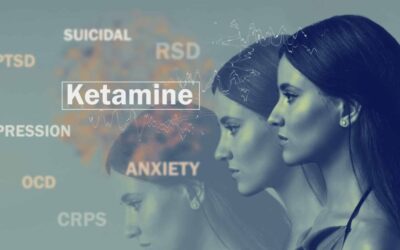In the ever evolving and highly researched landscape of behavioral health care, a revolutionary treatment called transcranial magnetic stimulation (TMS) is making waves. This non-invasive procedure uses magnetic fields to stimulate specific areas of the brain, offering hope for individuals struggling with conditions like depression, anxiety, and more. This blog post will examine what TMS is, how it works, and the journey through FDA approval to insurance coverage.
What is TMS?
TMS is a cutting-edge treatment that involves placing a magnetic coil against the scalp to deliver targeted pulses to specific brain regions. This process is highly targeted and regulated to ensure maximum benefits to the clients. Think of it as a gentle, non-invasive way to nudge nerve cells in the brain, aiming to improve their function. The procedure is performed without the need for surgery or anesthesia, making it an attractive option for many patients.
How Does TMS Work?
While the exact mechanisms of TMS are still being unraveled, the general principle is fascinating. The electromagnetic coil generates a rapidly changing magnetic field that penetrates the skull and induces a weak electrical current in the targeted brain area. This current stimulates nerve cells, potentially altering their activity. By adjusting the frequency and intensity of the pulses, TMS can be tailored to the individual’s needs.
TMS for Depression:
One of the most well-established applications of TMS is in the treatment of major depressive disorder, particularly for individuals who have not found relief through traditional approaches like medication or therapy. TMS offers a targeted, non-invasive alternative that has shown promising results in clinical studies. By focusing on specific brain regions known to be associated with depression, TMS aims to provide a more precise intervention without the side effects often associated with medication or electroconvulsive therapy (ECT).
Exploring New Horizons:
While depression remains the primary focus of TMS research, scientists are investigating its potential for a wide range of other conditions. From anxiety disorders like obsessive-compulsive disorder (OCD) and generalized anxiety disorder (GAD) to addiction and neurological conditions such as Parkinson’s disease and chronic pain, TMS is showing promise as a versatile treatment option. However, it’s important to note that more research is needed to confirm its long-term efficacy and safety for these indications.
The TMS Experience:
If you’re considering TMS treatment, you might be wondering what a typical session feels like. During the procedure, a technician will position the magnetic coil on your scalp, targeting the specific brain region of interest. The coil then delivers short magnetic pulses at predetermined frequencies and intensities. Sessions usually last between 20-40 minutes and are repeated several times per week for a course of treatment spanning several weeks.
As an outpatient procedure, TMS allows you to return home after each session. While generally well-tolerated, some individuals might experience mild side effects like scalp discomfort, headaches, or lightheadedness, which typically subside shortly after the session.
When TMS is coupled with talk therapy, group therapy, or other interventions it has been discovered that some patients feel their sessions are more productive. This is still in the speculative stage but interesting to note if you are exploring TMS for yourself or a loved one.
TMS Journey to FDA Approval:
TMS (Transcranial Magnetic Stimulation) is FDA-approved for certain conditions and is covered by many insurance plans, but the specifics may vary depending on the individual’s insurance provider and the specific condition being treated.
In 2008, the FDA cleared TMS for the treatment of major depressive disorder in adult patients who have not responded to prior antidepressant medications. Since then, the FDA has also approved TMS for the treatment of obsessive-compulsive disorder (OCD) and for the short-term relief of symptoms associated with migraine headaches.
Insurance Coverage
Many insurance companies, including Medicare and some private insurers, cover TMS for the treatment of major depressive disorder when certain criteria are met. These criteria typically include:
- A diagnosis of major depressive disorder
- Failure to respond to prior antidepressant medications
- Lack of response or intolerance to other treatment options, such as psychotherapy
However, insurance coverage for TMS may vary depending on the specific insurance plan and the condition being treated. For example, while TMS is FDA-approved for OCD, insurance coverage for this indication may be less common compared to coverage for depression.
It’s important for individuals considering TMS to check with their insurance provider to determine if the treatment is covered under their specific plan and to understand any out-of-pocket costs that may be associated with the treatment. In some cases, insurance companies may require prior authorization or have specific requirements that must be met before covering TMS.
Taking the Next Step:
Talking to Your Doctor If you’re struggling with treatment-resistant depression or other conditions that might benefit from TMS, it’s essential to have an open conversation with your doctor. They can assess your suitability for TMS, discuss potential risks and benefits, and help you set realistic expectations. Together, you can determine if TMS is the right path for your unique situation.
Transcranial magnetic stimulation is a promising frontier in mental health treatment. With its non-invasive nature, targeted approach, and potential to address a range of conditions, TMS offers hope to individuals who have struggled to find relief through traditional methods. As research continues to unravel the mysteries of the brain and refine TMS techniques, we may be on the cusp of a new era in mental health care. If you’re considering TMS, remember to have an open dialogue with your doctor and embrace the possibility of positive change on your journey towards well-being.










